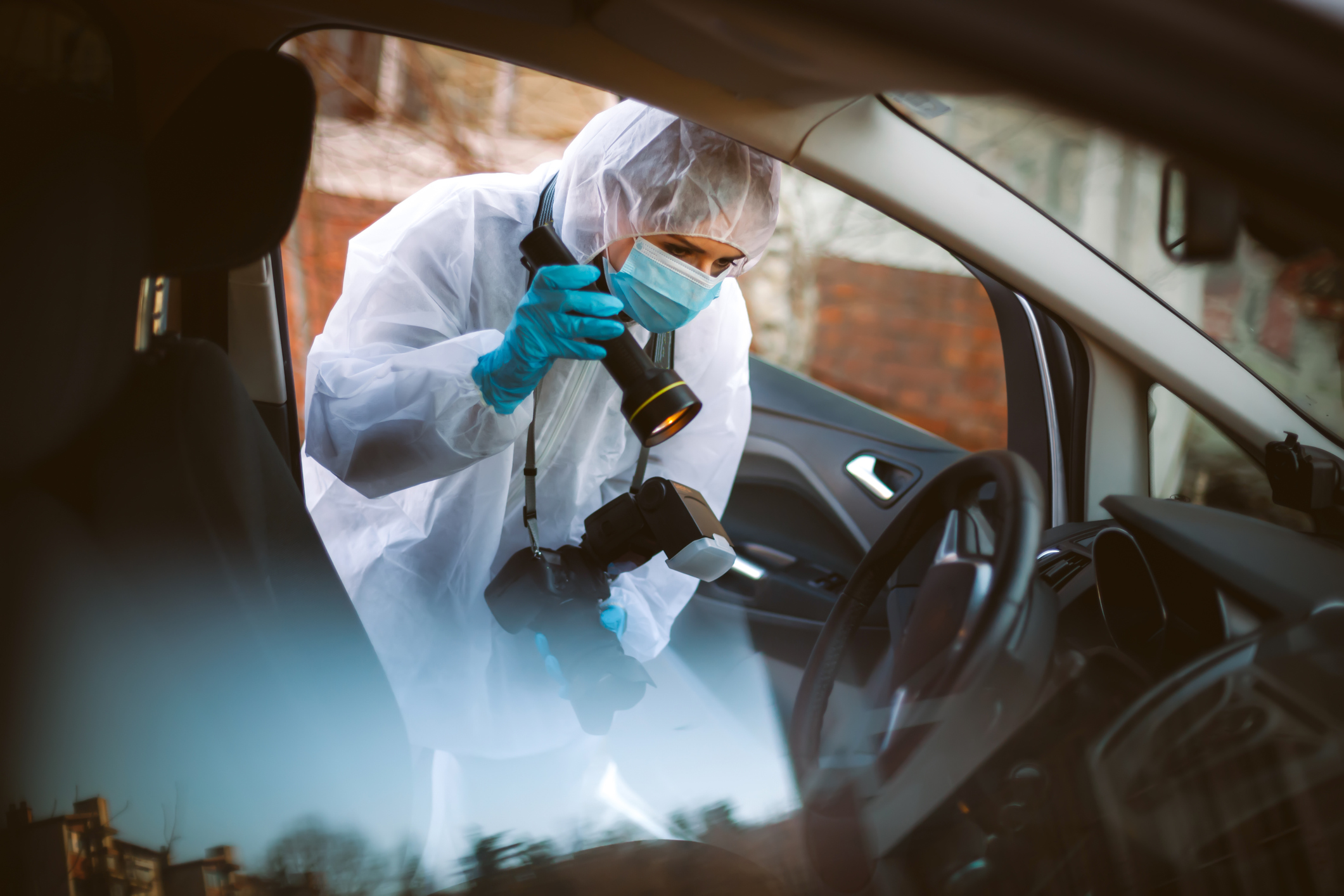What Is Forensic Evidence?
Forensic science encompasses a wide array of scientific fields, including physics, chemistry, computer science, and biology, that are used in searching for and explaining various pieces of evidence that can be used in legal cases, especially criminal cases. That may involve anything from DNA, blood alcohol content (BAC) tests, fingerprints, ballistics, and blood spatters, to digital evidence that can help prove or disprove someone’s guilt or innocence.
While not every form of forensic evidence is 100% reliable, it’s considered strong because it’s often usually provable. It also is more reliable than human memory or perception, meaning it can be used to refute an eyewitness’ testimony. Human memory is notoriously unreliable, especially under stress. That’s why people frequently hear about using DNA to disprove testimony.
How Is Forensic Evidence Used in Criminal Cases?
The use of forensic evidence is widespread and continues to grow as the science evolves and becomes more reliable. These are just a few examples.
- DNA. Many TV shows and movies involving crimes and law use DNA evidence as an eleventh-hour surprise that either proves someone guilty or not guilty. While actual courtroom scenarios aren’t always as dramatic, the reality is that DNA has become a mainstay for criminal cases. That may be a case where a rape victim misidentifies someone as their rapist, but the accused person’s DNA doesn’t match that found in the rape victim’s rape tests.
- Digital evidence is used in everything from high-tech theft to tracking someone’s movements and activities using digital records (computers, phones, etc.).
- Crime scene staging. Some forensic scientists re-create crime scenes to determine how a crime occurred. That may involve anything from physics to what blood spatters say about how someone was attacked.
However, even science is fallible. How forensic evidence is collected, transferred, and stored can affect its reliability. When handled properly, it can provide the basis for a jury to find the charged person innocent. It can also serve as the basis for appealing a conviction, especially when discovered after the case is concluded. It can also lead to convictions. That’s why it’s vital to work with an experienced criminal defense attorney if forensic evidence will likely be part of your case. Your attorney can study the evidence and determine whether it can be used against you or benefit you.
What Types of Crimes Rely on Forensic Evidence?
Nearly any crime can involve forensic evidence of some sort. Among the criminal cases most likely to bring in forensic evidence:
- Sexual assault. DNA is often used to connect the person accused of assault with the victim, whether from rape test kits or DNA on the victim’s clothes or body that matches the accused.
- Homicide. Cases involving someone’s death can use anything from DNA to ballistics to blood splatter to autopsies as evidence.
- Arson. Scientists can study burned areas to learn about what was used to start the fire and how it spread and identify potential suspects.
- White-collar crimes. Digital forensics often comes into play in these cases involving highly complicated digital records, usually financial.
- Drug charges. Traces of drugs, paraphernalia, and video surveillance can provide evidence.
What Role Does Forensic Evidence Play During a Criminal Proceeding?
When someone is charged with a crime (known as the defendant), the prosecution is responsible for proving their guilt beyond a reasonable doubt in what’s known as the burden of proof. In civil cases, the burden is lower than beyond a reasonable doubt, which is why you often hear about someone pursuing a civil case against someone after a criminal case ended in acquittal (for example, if someone died in a car accident but the evidence was inconclusive about one driver’s liability, the family of the deceased may pursue civil charges).
Because criminal cases begin with the defendant being considered innocent until proven guilty, the prosecutor has to prove guilt. In order for the prosecution to be successful with criminal charges, they must prove the defendant’s identity and that the defendant was present and involved in the crime. The evidence must persuade a jury that little or no doubt can exist that the defendant is guilty. Forensics may work in the prosecutor’s favor, or the defense attorney may use it to raise reasonable doubt.
How Long Does Forensic Evidence Last?
Criminal cases often have much longer statutes of limitations than civil cases. In Wisconsin, most civil cases must be filed within two to six years of the crime (with some exceptions). Depending on the specific crime being charged, criminal cases may have to be filed in as few as three years, or, in the case of homicide, there is no limit at all.
Forensic evidence varies as to how long it’s able to be collected. DNA may exist for years, which is why people may hear about rape charges being filed long after the alleged crime. But that assumes the DNA was collected quickly after the assault. Other evidence may be destroyed depending on the condition of the crime scene. What’s possible depends on the specifics of the case.
What Should I Do if I’m Facing Criminal Charges in Wisconsin?
Call West & Dunn as soon as possible at 608-975-3042 to request a consultation. The consequences of being convicted of criminal charges in Wisconsin can be significantly life-changing. Our team of experienced, knowledgeable criminal defense attorneys can review your charges and case and advise you on the right approach to building your defense.
